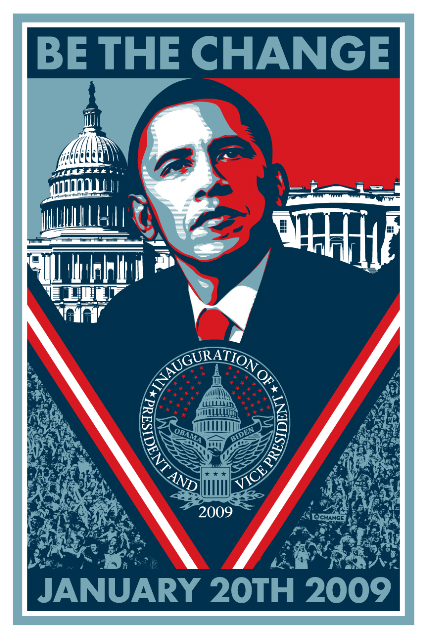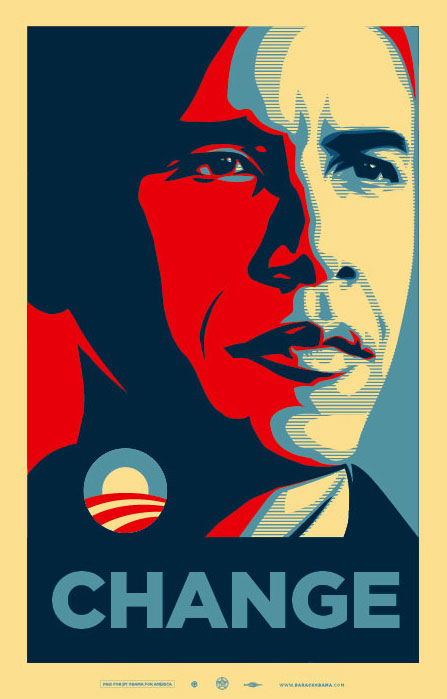
President Barack Obama marks his hundredth day in office on Wednesday, but it’s hardly the only digit that matters to the new administration.Here are some highlights of Obama’s first 100 days, by the numbers:
$3.6 trillion — Total spending in Obama’s proposed federal budget for 2010.
$1.75 trillion — Total projected deficit in Obama’s proposed federal budget for 2010.
$787 billion — Cost of tax cuts and new spending in economic stimulus package approved by Congress.
$558.4 billion — Increase in the public debt, from Jan. 20 through April 24.
$235 billion — Tax dollars spent to bail out failing financial institutions, Jan. 20-April 20.
2.055 million — Number of jobs lost, January-March.
908,666 — Housing foreclosures, Jan. 20-April 24.
8016.95 — Dow Jones Industrial Average close on April 27.
7949.09 — Dow Jones Industrial Average close on Obama’s Inauguration Day.
106 — U.S. military deaths in Afghanistan since Jan. 20.
49 — U.S. military deaths in Iraq since Jan. 20.
27 — Bank failures.
15 — Bills signed into law.
11 — States visited.
9 — Foreign countries visited.
4 — Visits to Camp David.
3 — Commerce secretaries nominated.
2 — Formal news conferences.
2 — Republicans in the Cabinet
1 — Visits to Hyde Park home in Chicago
1 — Commerce secretaries confirmed by the Senate.
1 — Number of college basketball teams picked by Obama that made it to the Final Four. [via ASSOCIATED PRESS]
ASSOCIATED PRESS: President Barack Obama kicks off his 100th day in office with a new Democratic ally at his side. Sen. Arlen Specter will discuss his new Democratic allegiance during an address with Obama and Vice President Joe Biden Wednesday morning. MORE
WALL STREET JOURNAL: Mr. Obama talks the language of pragmatism, but his program has revealed a man of  the left. He clearly views the financial crisis and the liberal majorities in Congress as a rare chance to advance the power of the state in American life. The only two comparable moments in the last century were 1965, which gave us the Great Society, and 1933, which bequeathed the New Deal. Mr. Obama’s goals are at least as ambitious, resuming the march toward the European welfare state that was stopped by what Democrats like to call the Reagan detour.
the left. He clearly views the financial crisis and the liberal majorities in Congress as a rare chance to advance the power of the state in American life. The only two comparable moments in the last century were 1965, which gave us the Great Society, and 1933, which bequeathed the New Deal. Mr. Obama’s goals are at least as ambitious, resuming the march toward the European welfare state that was stopped by what Democrats like to call the Reagan detour.
His main method here is to make the federal government the guarantor of middle-class security. He wants to make a college education a new entitlement, regardless of the cost. He wants state-financed health-care available to all, even if it means jamming a $1 trillion bill through the Senate with 51 votes. And he wants a cap-and-trade tax that would punish the main current sources of U.S. energy and hand Washington a vast new source of revenue. Oh, and by the way, he also wants to fix the financial system, run the auto industry, and build a nationwide, high-speed rail network. And on the seventh day, he rested. MORE
LOS ANGELES TIMES: After 100 days, it seems that President Obama is that rare creature, a responsible  gambler. Bill Clinton took large risks personally but not as a policymaker. George W. Bush took lots of risks, but they were reckless and irresponsible ones. Obama is unlike either of his predecessors. Inheriting a dramatically reduced stack of chips, he finds himself with little choice but to bet heavily again and again — but he is doing so with the odds rather than against them, taking sensible, calculated risks that may well pay off. […] So what has he done? So far, interestingly, Obama appears to be combining the best of both of his predecessors while avoiding the worst. Forced to gamble for high stakes, like Bush, he has made his bets based on solid policy wonkery, like Clinton. MORE
gambler. Bill Clinton took large risks personally but not as a policymaker. George W. Bush took lots of risks, but they were reckless and irresponsible ones. Obama is unlike either of his predecessors. Inheriting a dramatically reduced stack of chips, he finds himself with little choice but to bet heavily again and again — but he is doing so with the odds rather than against them, taking sensible, calculated risks that may well pay off. […] So what has he done? So far, interestingly, Obama appears to be combining the best of both of his predecessors while avoiding the worst. Forced to gamble for high stakes, like Bush, he has made his bets based on solid policy wonkery, like Clinton. MORE
POLITICO: Before President Franklin D. Roosevelt came along, few people particularly cared what a president did with his first 100 days in office. In peacetime, American presidents might be more ambitious or more staid, but the  expectation that the future of the American economy, say, depended on the new president’s immediate attention would have struck most people as crazy. Presidents simply didn’t have that kind of power. FDR changed all that. He injected a sense of urgency into the executive in his first 100 days on the job. He forced the country’s troubled banks to go on holiday, put Prohibition on the fast track to extinction and forced through Congress and then signed … government austerity measures. Our still-new president gives every indication that he has studied FDR’s success and wishes to leave a similar mark on the country. There are many larger similarities, but it’s the smaller ones that indicate Obama really means it. MORE
expectation that the future of the American economy, say, depended on the new president’s immediate attention would have struck most people as crazy. Presidents simply didn’t have that kind of power. FDR changed all that. He injected a sense of urgency into the executive in his first 100 days on the job. He forced the country’s troubled banks to go on holiday, put Prohibition on the fast track to extinction and forced through Congress and then signed … government austerity measures. Our still-new president gives every indication that he has studied FDR’s success and wishes to leave a similar mark on the country. There are many larger similarities, but it’s the smaller ones that indicate Obama really means it. MORE
POLITICO: They might be less dizzying than the first 100, but President Barack Obama’s second 100 days in office could prove just as vital to his legacy. By Day 200 – August 7 — the president will know if hopeful spring signs  presaged an economic recovery, whether he’s on course to pass comprehensive health care and energy legislation, if his initial foray into Middle East peacemaking brings any results, and if he’s succeeded in getting banks and automakers off life-support. The White House is carefully preparing for all these issues, but they got a reminder this week that the best laid plans are often upended by unpredictable events. The decision by Sen. Arlen Specter to switch from Republican to Democrat could play a pivotal role in at least two big-ticket issues on Capitol Hill – and that’s only the first of what may be other X-factors in the weeks ahead. Here’s a look at 10 key decisions Obama faces in the next 100 days. MORE
presaged an economic recovery, whether he’s on course to pass comprehensive health care and energy legislation, if his initial foray into Middle East peacemaking brings any results, and if he’s succeeded in getting banks and automakers off life-support. The White House is carefully preparing for all these issues, but they got a reminder this week that the best laid plans are often upended by unpredictable events. The decision by Sen. Arlen Specter to switch from Republican to Democrat could play a pivotal role in at least two big-ticket issues on Capitol Hill – and that’s only the first of what may be other X-factors in the weeks ahead. Here’s a look at 10 key decisions Obama faces in the next 100 days. MORE
